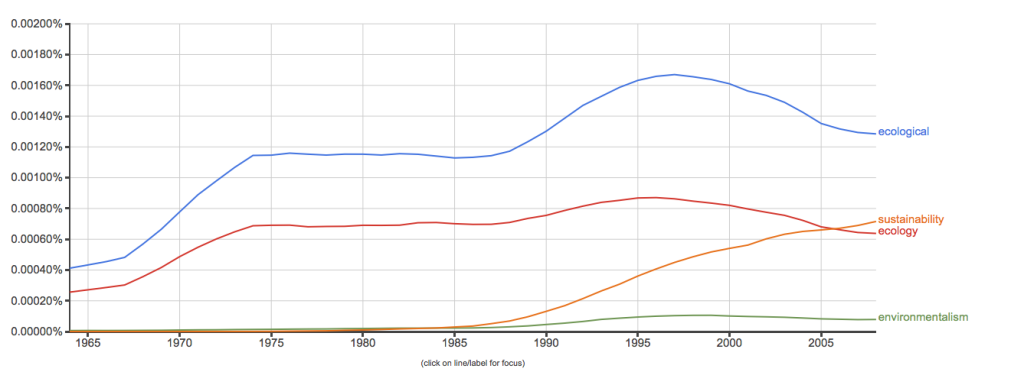Dear Sir,
This is more of an appeal, than a letter.
I have signed up for alerts on the term, sustainability, from two newspapers, yours and the Financial Times. I have been doing this for some time. Consistently I get a significant amount of alerts from the Financial Times each week that carry headlines such as:
Fossil fuel protesters blockade offices at Harvard or After 15 years at Starbucks, Ben Packard takes up protecting nature or Sharing low carbon sources for a sustainable energy union.
I get few from the New York Times and this one received today pretty much reflects the pattern of the kind of headlines I get from the New York Times:
Lobbying Push Made ‘Grown in U.S.A’ Bloom at White House Dinner
By MARIAN BURROS
American flowers, not imported ones, adorned a White House state dinner thanks to a campaign that included a chat with President Obama on Air Force One.
It’s as if sustainability has to be connected to a social page issue to be considered as sustainability. This is not just one time, but a pattern. I really would like you to reconsider your “tagging” of articles for sustainability. We created a sustainability taxonomy over seven years ago which we have used successfully to curate and catalog over 1,600 videos on the subject of sustainability, EarthSayers.tv, Voices of Sustainability. You might find it useful.
It may be that the New York Times has a very narrow definition of the term or simply does not like using it. Whatever the issue, things need to change. Your paper did cover the students, not mentioning Harvard with the largest endowment in the country in the headline, To Stop Climate Change, Students Aim at College Portfolios. The point I want to make is climate change is a major sustainability category, along with global warming and responsible/social investment, examples of the latter found here in the special collection on EarthSayers.tv. I am hoping an argument need not be made as to why what the Financial Times is doing is to be emulated by the New York Times, that this is merely an oversight, and you agree with putting all the wood behind one arrow makes sense when it comes to integrating planet, people, and prosperity into our language, ideas, plans and ‘solutions.’
Attached, for your information is a Google ngram you might find interesting on the term sustainability (1964+) which indicates the growth of the use of the term surpassing ecology and environmentalism. By the way, there are over 1.2M searching on the term each month using Google another awareness indicator.

